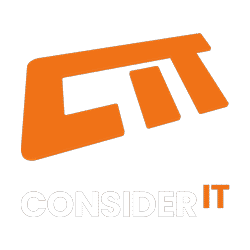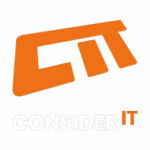If you’ve read our blog on CEO fraud, you’ll know that hackers are getting more and more sly when it comes to different ways to attack people and businesses.
Whether it’s through hacking IT systems, sending fake emails or carrying out malware attacks, there are so many different ways a hacker can actively get into your systems and find out sensitive information about you or your business.
But, did you know you might be giving hackers easy access to your private information through your own social media?
Have you heard of doxing? Doxing (or reconnaissance) is the way criminals research and gather information about a target before using it maliciously, whether its by hacking directly, guessing passwords, or even going so far as to create the perfect, personalised trap to target you.
Cyber criminals look to collect all of the information available about you, and social media can make you an easy target.
We willingly and freely publish so much personal information about themselves publicly on social media, from friends and family members to photographs, home and workplace addresses – all of which makes us more vulnerable to attack.
Passwords and password recovery answers often use seemingly innocuous details like children’s names, pet’s names, their year of birth, place of birth. But, when researched on social media and combined, these can be the perfect tools to unlock your email, social media and bank accounts.
Even more concerning, stats released by the National Cyber Security Centre last year showed millions of people in the UK used combinations of basic, easy-to-guess passwords including:
- Passwords that include basic information that can be found easily from your social media – including your real name or username and family names, the football team you support.
- Place names, birthdays, or single dictionary words.
- Numerical or keyboard sequences (e.g. QWERTY, 12345)
- Names of comic book characters and bands
These types of passwords are easy to guess and pose a threat the security of your accounts. Hackers will be able to easily guess these types of passwords by analysing your personal information and making informative guesses.
Make it more difficult for hackers by taking extra steps to minimise these threats.
There are simple, straightforward ways to make your social media more secure, including making social media profiles private and removing anyone you don’t personally know from your following. Enabling two-factor authentication with phone numbers and separate emails can also make your online presence more secure.
Other ways to secure your accounts include:
- Regularly updating apps
- Blocking unknown accounts
- Making your passwords long, with combinations of upper- and lower-case letters, symbols and numbers
- Be careful when logging into accounts through email links – always check the sender details because this is another popular phishing scam
- Never share your passwords with anyone
- Use different passwords for different social media accounts
- Consider using a password manager
By making these simple changes, you can protect your own personal information from being analysed by potential hackers. By being aware of the dangers and taking some proactive, positive steps to reduce these risks can help keep your information from falling into the wrong hands.
These tips apply to your personal social media accounts, as well as your business and professional accounts. Want to talk to us about your business security? We offer a range of services including Cyber Essentials and Cyber Essentials Plus, backup services, a top-range Disaster Recovery Suite, and IT support.
You can find out more about all of our different services at https://considerit.com/what-we-do/managed-it-services/



